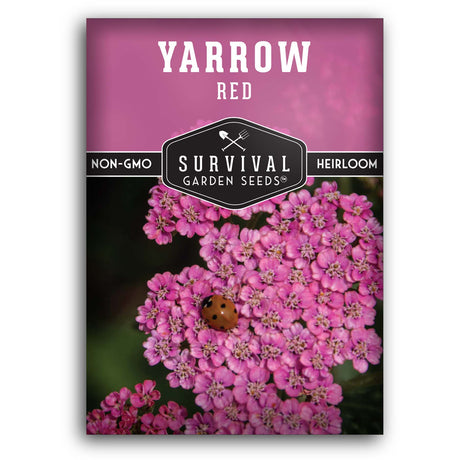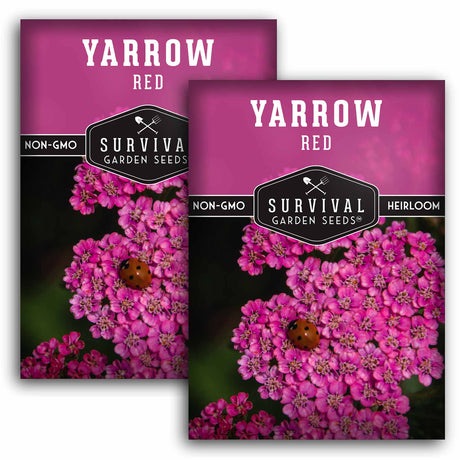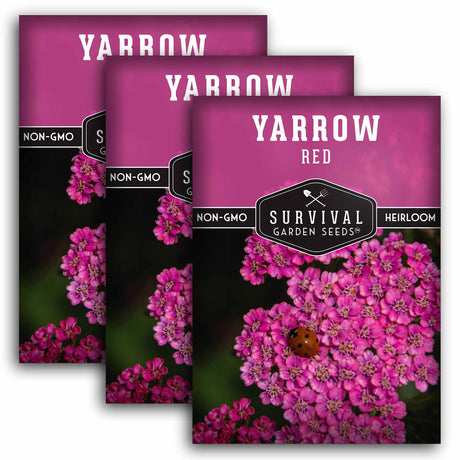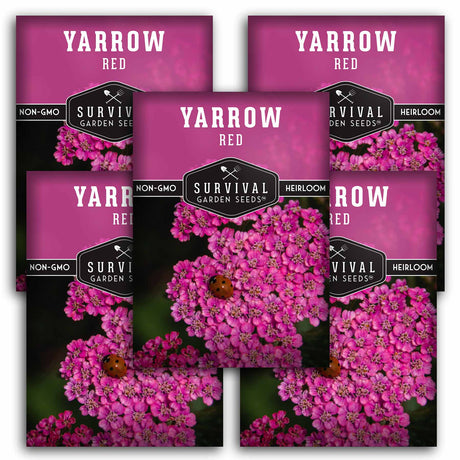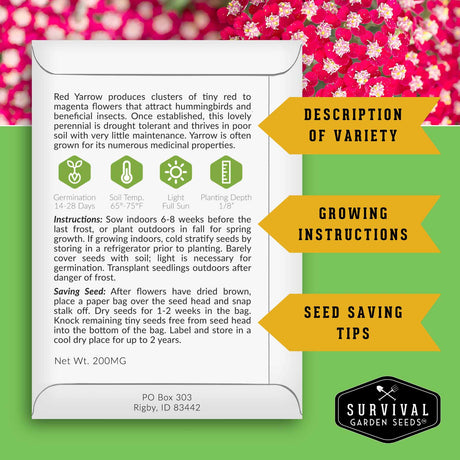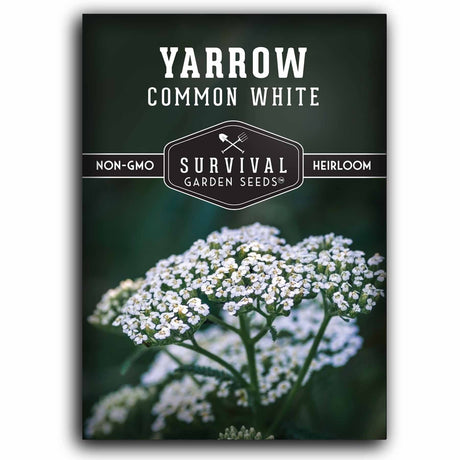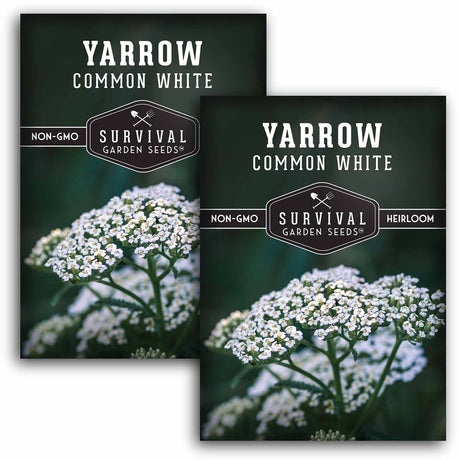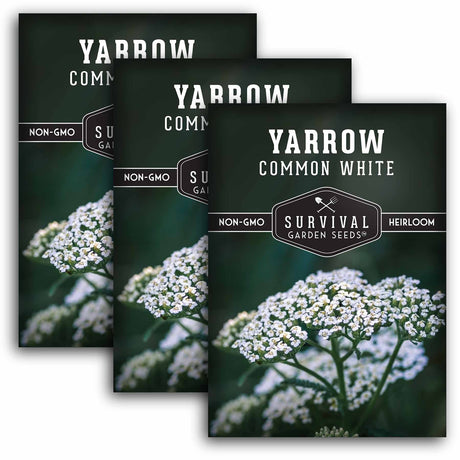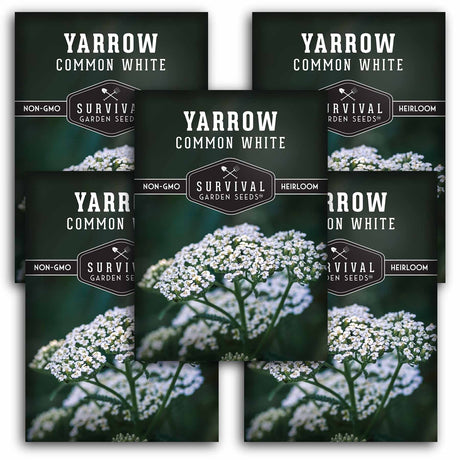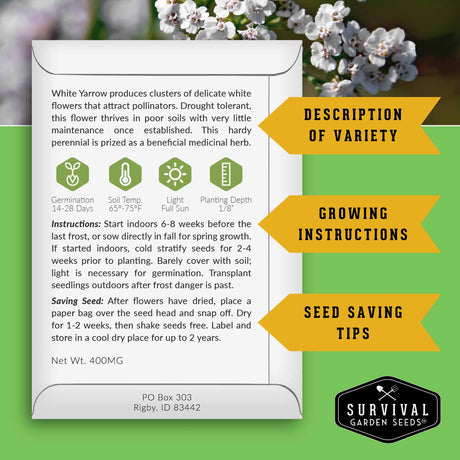Survival Garden Seeds presents a curated selection of non-GMO and heirloom yarrow seeds for sale. These seeds can be cultivated in your garden space and attract pollinators and hummingbirds. Dried or fresh, yarrow can be used in teas and various remedies.
Growing Yarrow Seeds in Your Garden
- Ornamental and medicinal use
- Enhances garden diversity
- Heirloom, non-GMO seeds
- Drought-tolerant and easy to grow
INTRODUCING YARROW SEEDS
Yarrow has been valued for centuries for its healing properties and use in many cultural traditions. Coming from Europe and Asia, today it is celebrated worldwide. The plant is named after Achilles, the Greek hero who reportedly used yarrow to treat his soldiers' wounds. It is appreciated for its medicinal qualities, but also for improving soil health. Yarrow can blossom in USDA hardiness zones 3 to 9, making it suitable for a broad range of garden settings.
PLANTING YARROW SEEDS
Start seeds indoors, 6 to 8 weeks before the last frost. Or, sow them directly in the garden come early spring or fall. Knowing when to plant yarrow seeds is important for cultivating strong plants that will last for years. Yarrow seeds need light to germinate, so simply pressing them into the soil will be sufficient. Keep the soil lightly moist until germination starts. Usually, that’s within 14 to 21 days. When seedlings are sturdy enough, transplant them outdoors, providing 12 to 18 inches of space between the plants.
MAINTAINING YARROW PLANTS
Due to its tolerance to drought, yarrow is easy to care for once established, requiring minimal water. It can also thrive in poor soil. Fertilization is not mandatory and can be kept to a minimum. Deadheading dry flowers will encourage longer blooming. Yarrow can spread through its rhizome system. So, it may be necessary to manage its growth to prevent it from overtaking other plants.
Enjoy the traditional, lovely flowers of yarrow plants! With our yarrow seeds, gardeners have an opportunity to grow a stunning, useful plant that will last for years. Get yours today, and start planting!


